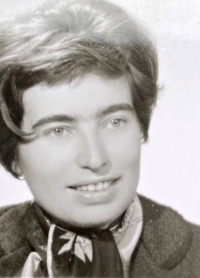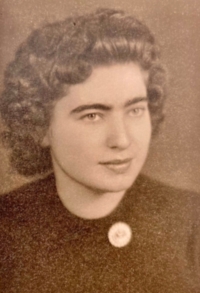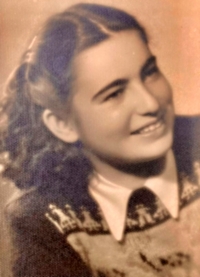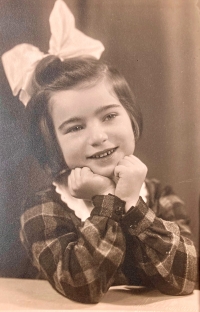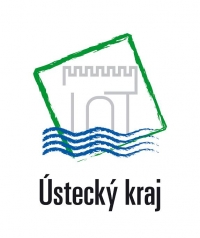After the war, the Czech came looting to Litvinov

Download image
Olga Chotová, née Guhrá, was born on February 5, 1937 into a mixed marriage, her mother was Jewish and her father Czech. After the Munich dictatorship and the German occupation of the Sudetenland, her parents refused to leave Litvínov and also refused to accept the citizenship of the “Reich”. As a child, Olga experienced the bombing of a chemical plant in Záluží near Litvínov and the bombs falling behind the church in Litvínov, where she lived with her parents. During the war, her mother was protected from transport to the concentration camp by marriage, until in February 1945 she was summoned to deportation to Terezín. However, the transport did not leave Most. The witness experienced the end of the war as well as the fear of the Germans and the post-war looting of the Czechs at the border. The father handed over the business to the Communists voluntarily in 1948. Subsequently, he joined the Czechoslovak Army Mine. In the 1950s, Olga was accepted to anuniversity, but she was unabe to start her studies, she had to take care of her sick father, her mother died shortly after the war as a result of suffering during the transport. Olga did not agree with the communist regime, she managed to win the fight oveer the house she inherited after the death of her parents in Litvínov, where she lives to this day. As a teacher, she taught a number of famous Litvínov hockey players, Olympic medalists from Nagano in 1998.


